Performance Navigator: Exploring JMeter's Controller
Table of contents
Introduction
The JMeter Controller is the command center of performance testing, enabling testers to orchestrate test scenarios and simulate user behavior effectively. Understanding its role and functionality is key to designing robust performance tests with JMeter.
What is JMeter Controller?
JMeter Controller is a fundamental component in Apache JMeter, used to organize and control the flow of requests and actions during performance testing. It acts as a central hub where testers define the structure of their tests, specify user scenarios, and manage the execution of various elements within a test plan.
Types of Controller
In JMeter, controllers play a vital role in managing the order and execution of samplers or requests within a thread. They provide the flexibility to control when and how requests are sent to a web server. JMeter offers a variety of logic controllers, each serving a unique purpose. Let's explore some essential controllers along with real-time examples.
Transaction Controller: Transaction Controller is a powerful tool that helps in measuring the response time of a set of related requests by allowing you to group multiple requests under a single transaction and provides aggregated response time metrics for the entire transaction. It considers all the nested samplers (requests) as part of a single transaction and provides aggregated metrics.
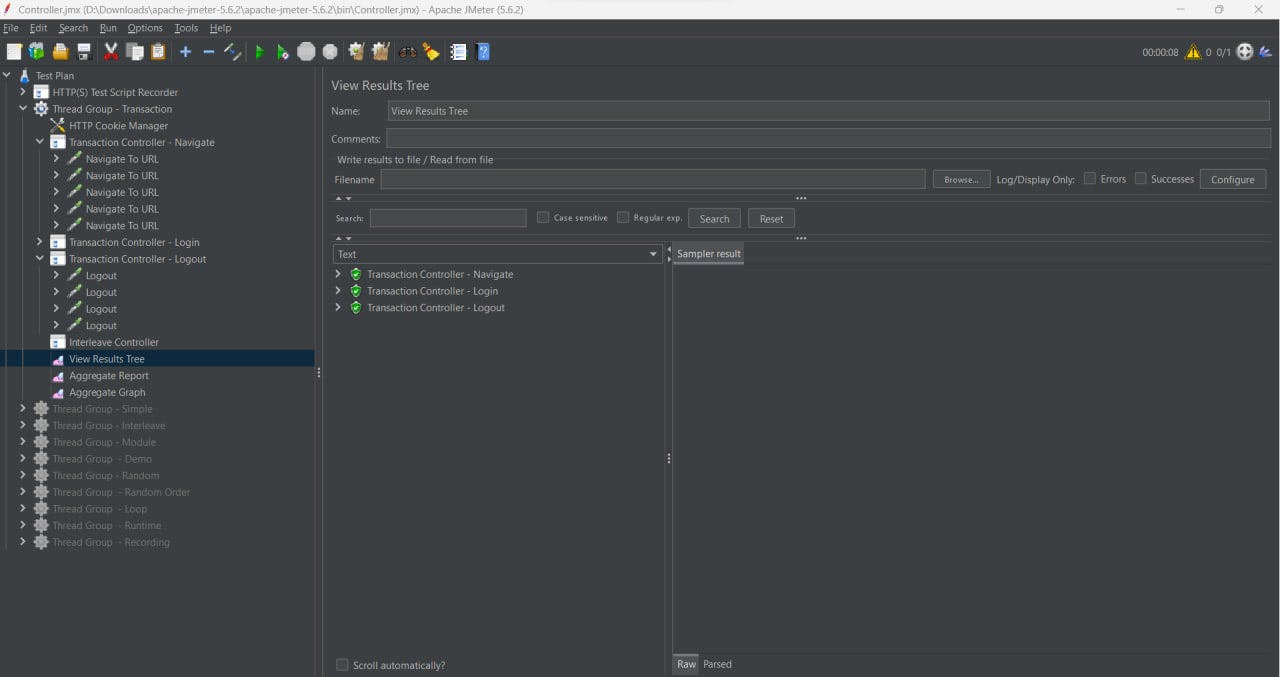
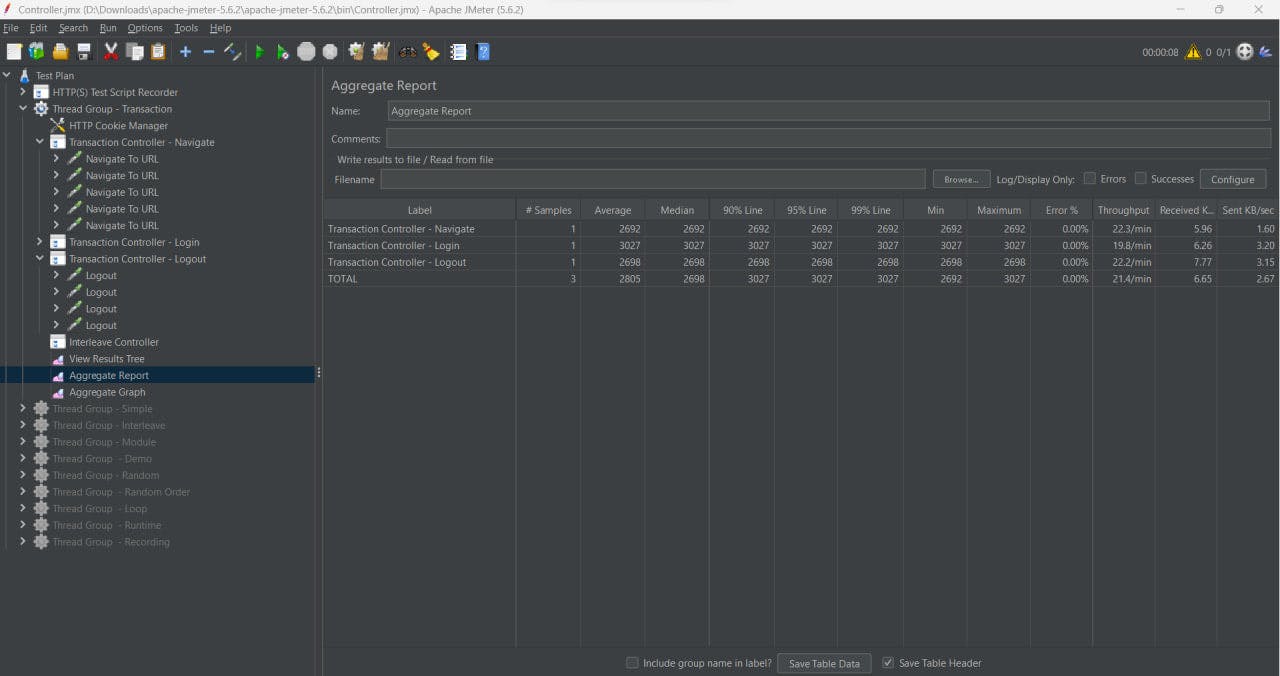
Interleave Controller: Interleave Controller is used to control the order of execution of its child elements within a loop. It ensures that, in each iteration, one child element is executed, following a sequential order. This can be useful in scenarios where you want to simulate a mix of different actions or requests in a controlled manner.
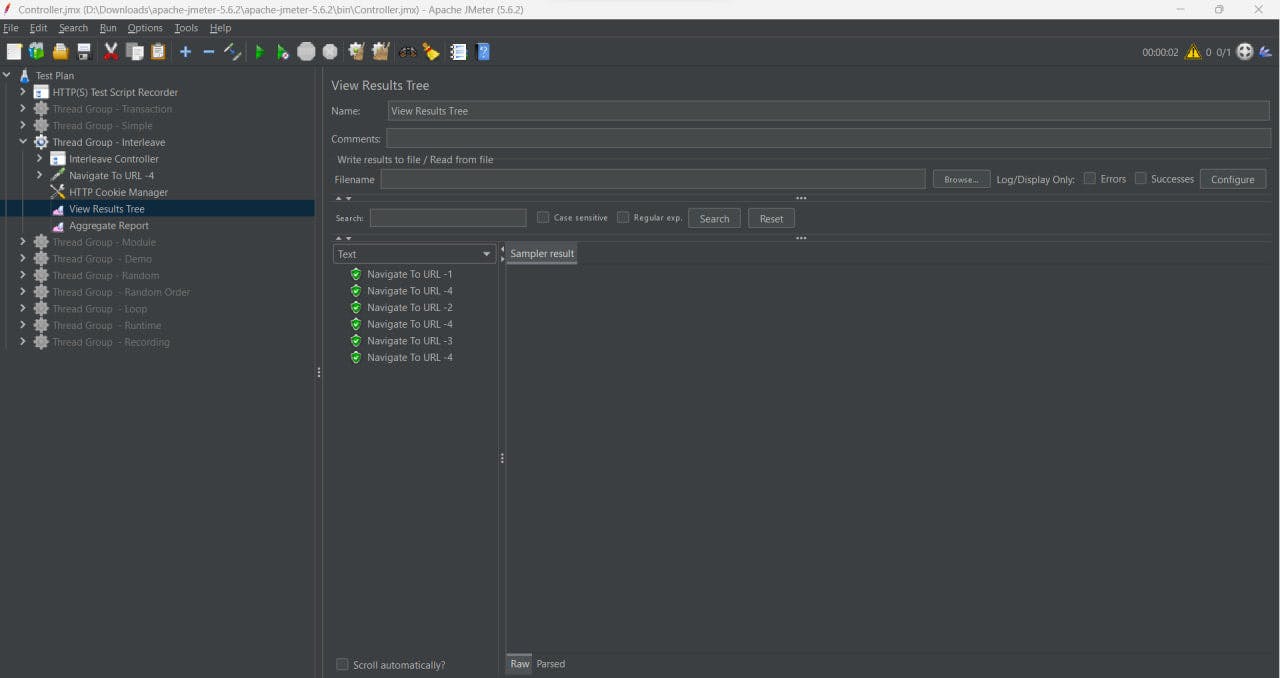
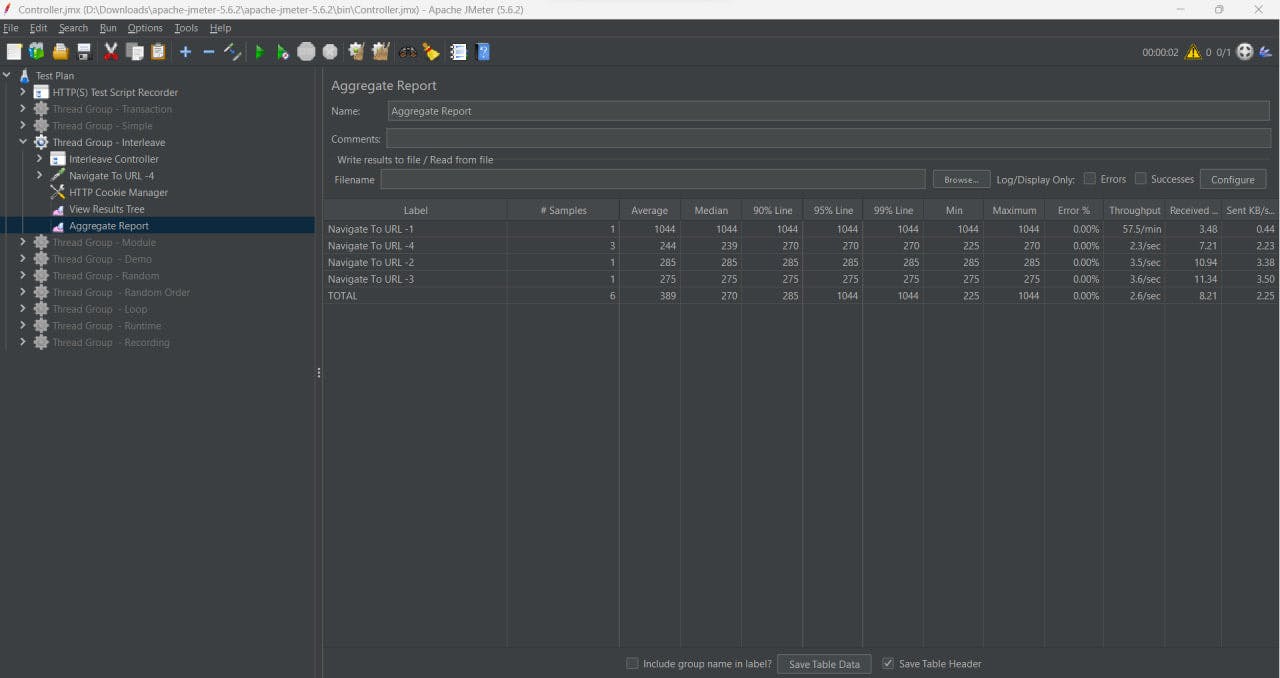
Loop Controller: Loop Controller is a logic controller that allows you to repeatedly run its child elements a specified number of times or indefinitely.
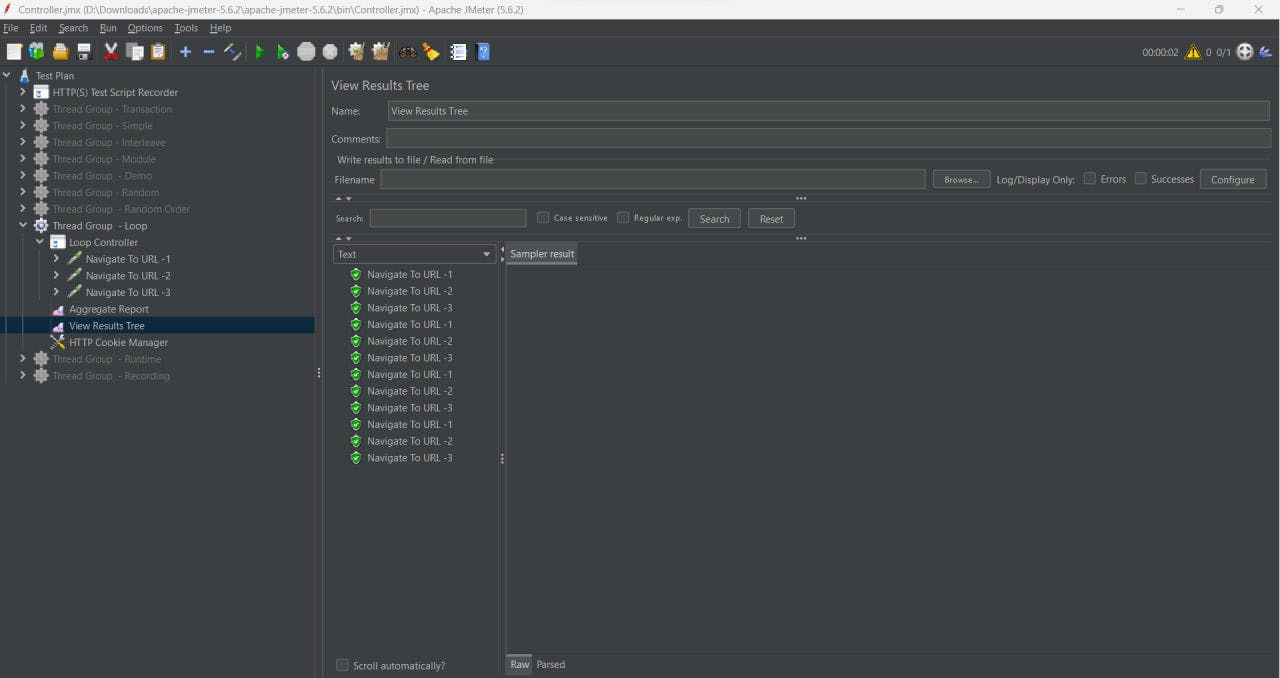
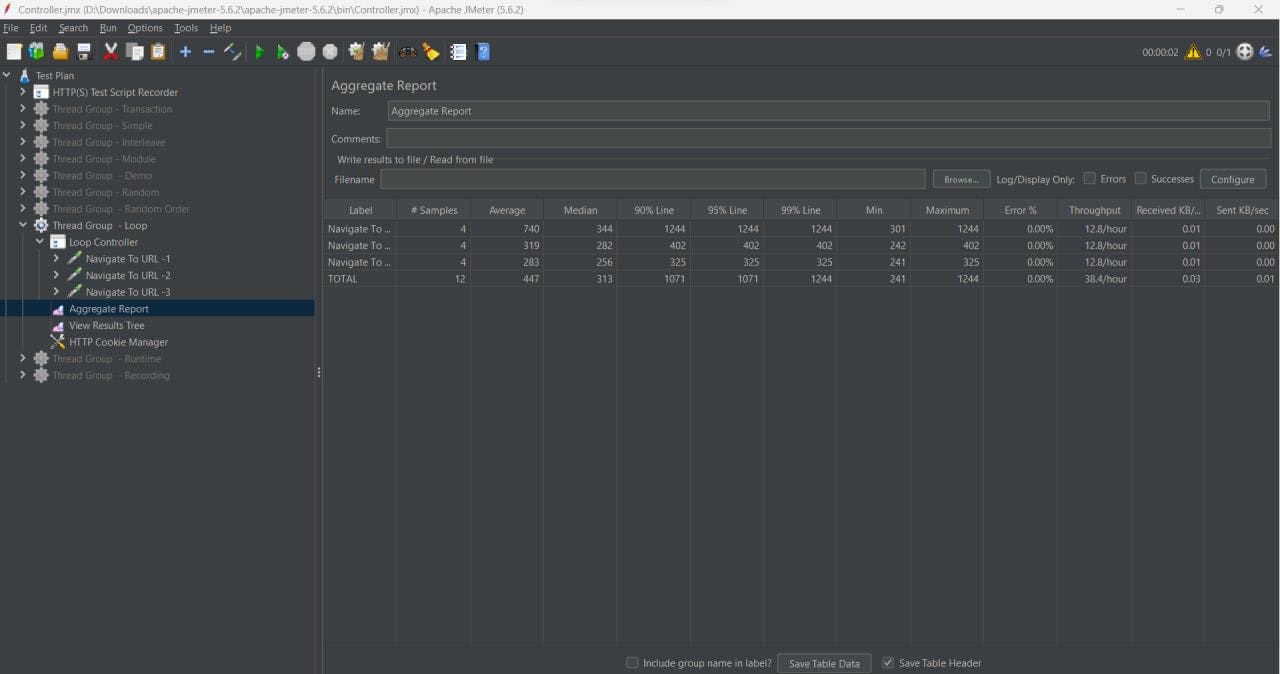
Module Controller: The primary purpose of the Module Controller is to promote reusability and maintainability in your JMeter test plans by acting as a placeholder/folder for other controllers or samplers, enabling you to organize and manage test plan fragments effectively.
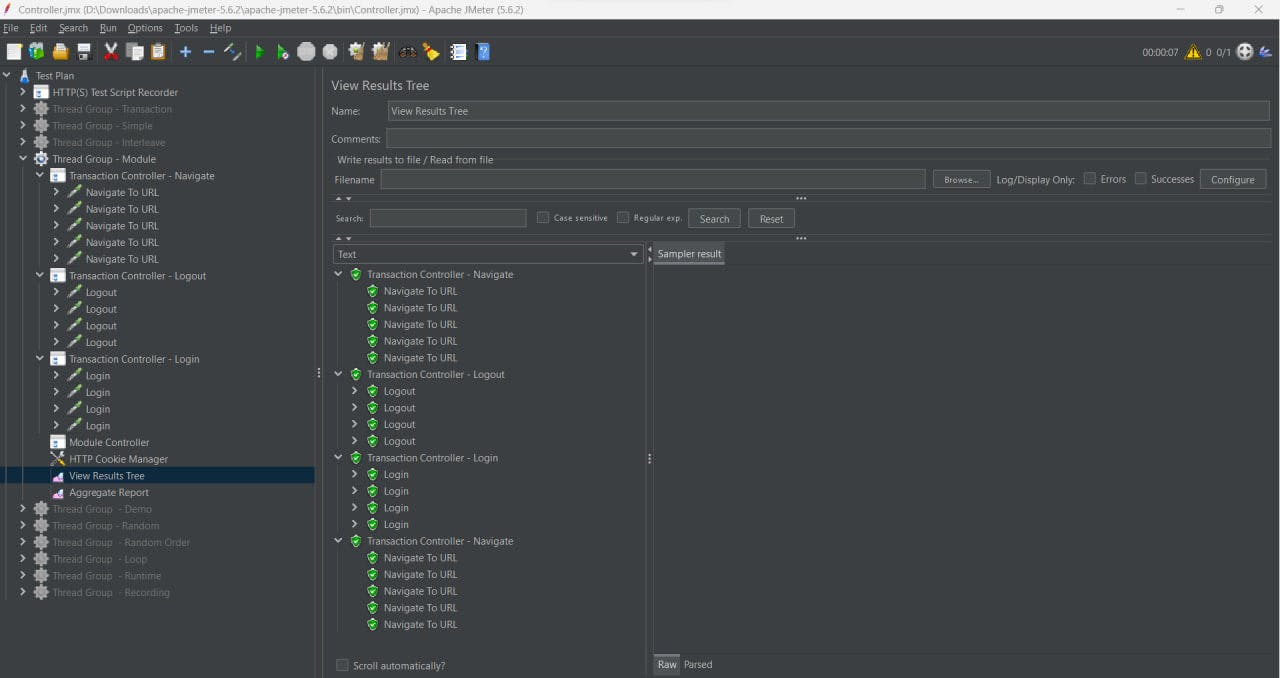
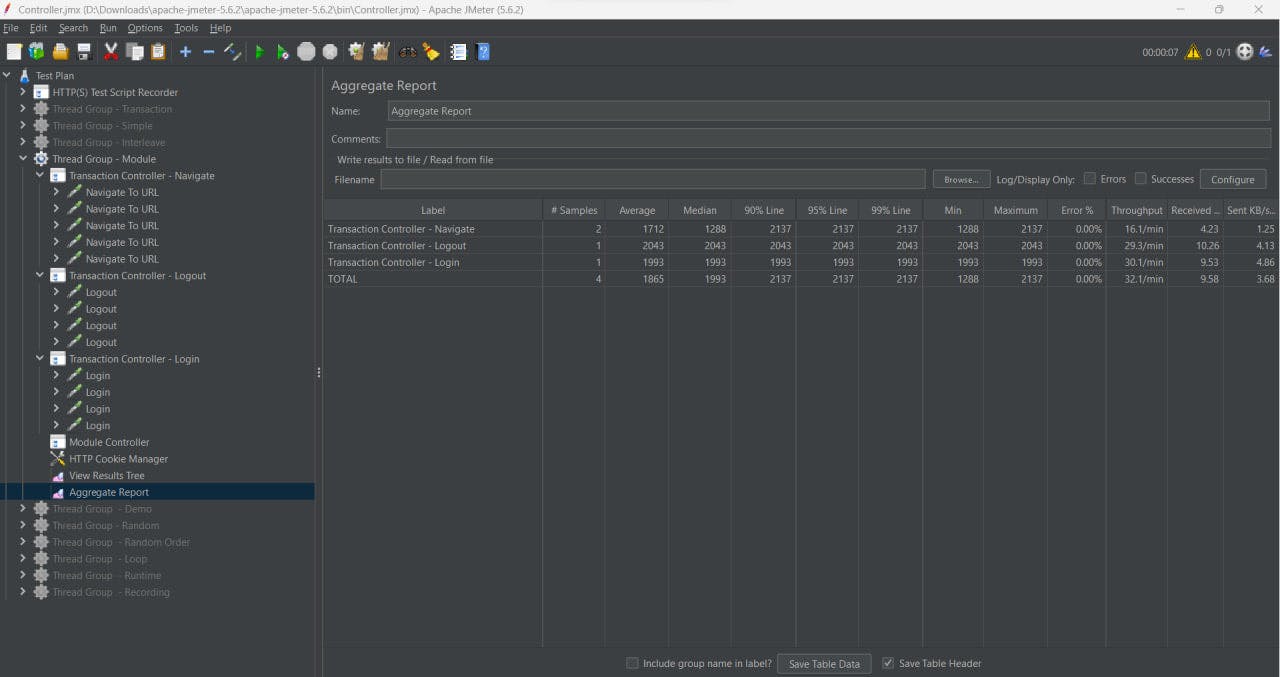
Random Controller: The primary purpose of the Random Controller is to introduce randomness in the order of execution for its child elements. This randomness helps emulate diverse user interactions during performance testing, ensuring that the application can handle different usage patterns effectively. By randomly selecting and executing requests, the Random Controller contributes to creating more realistic load scenarios.
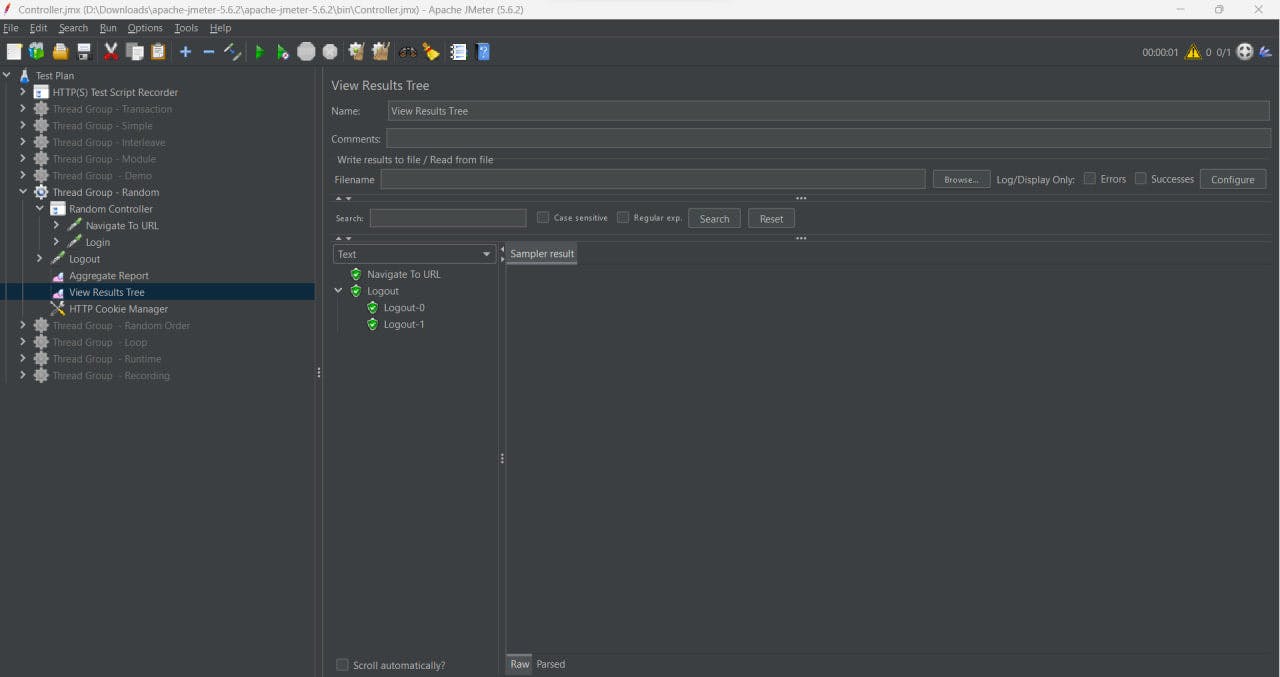
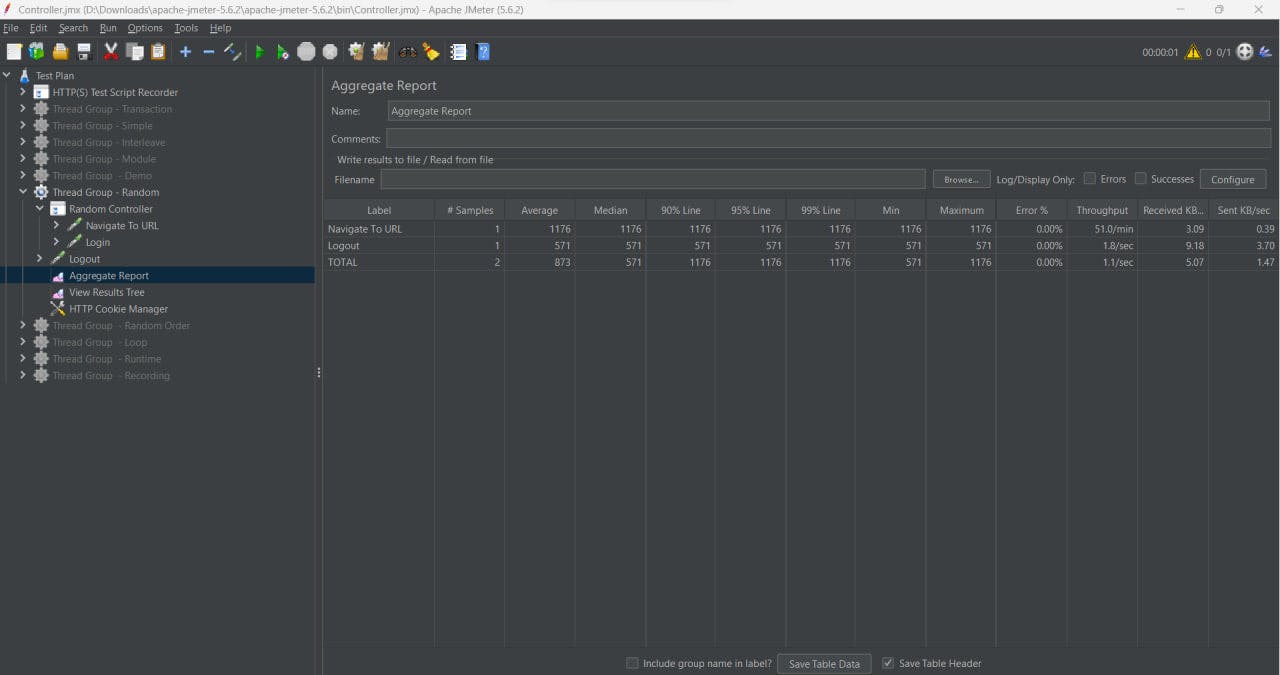
Random Order Controller: In JMeter, the Random Order Controller is a logic controller that enables the random execution of its child elements during a test.
The Random Controller selects and executes one child element randomly per iteration, while the Random Order Controller ensures all child elements are executed at least once in a random sequence within a test run. By introducing randomness, the Random Order Controller helps create more realistic and varied load patterns during performance testing.
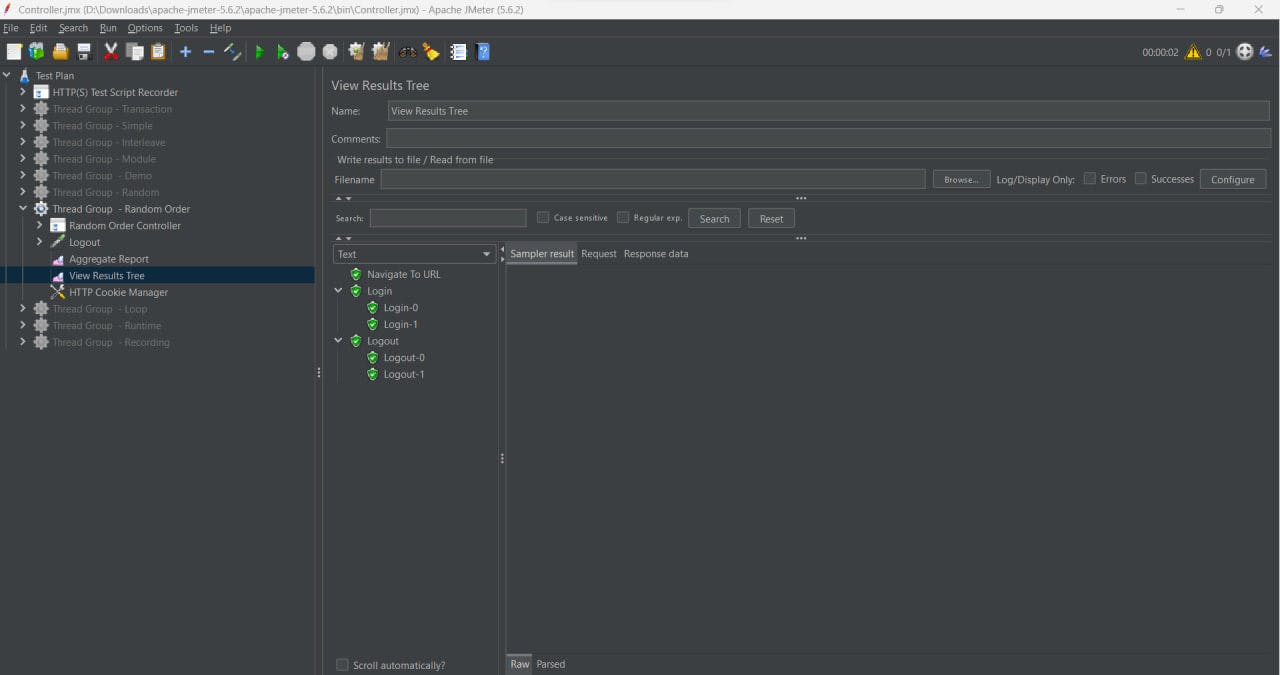
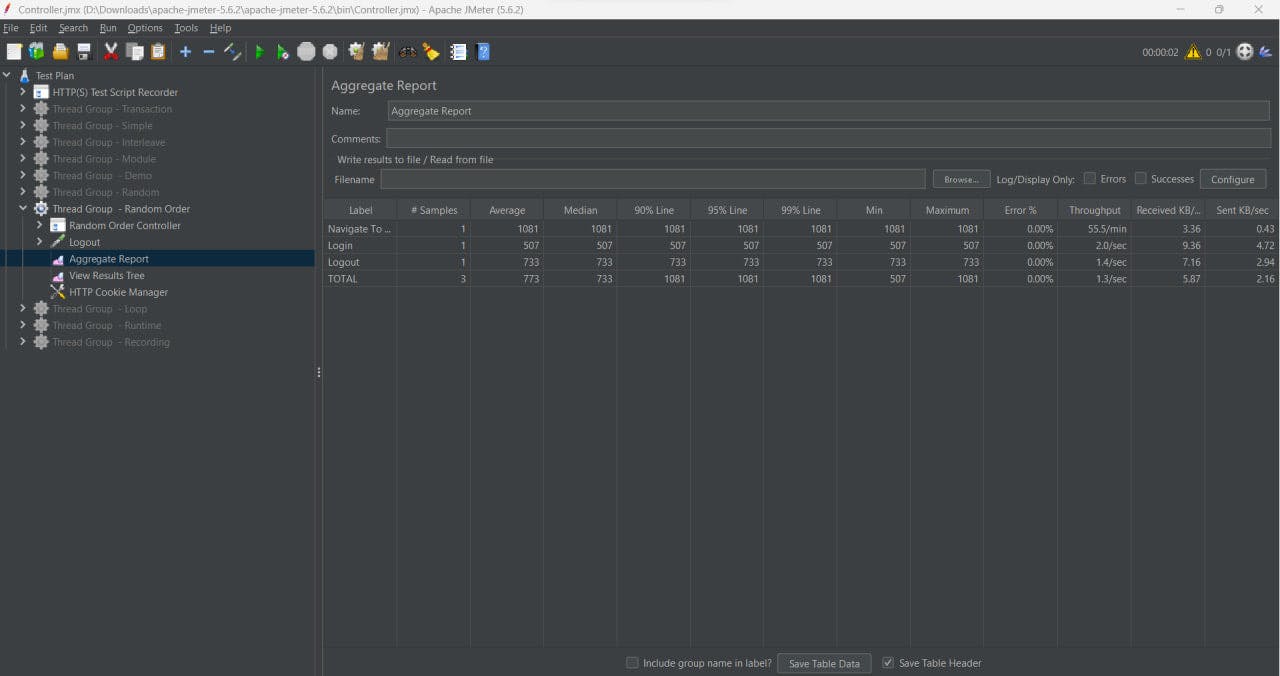
Recording Controller: The primary purpose of the Recording Controller is to serve as a placeholder for storing recorded HTTP requests and associated elements during the test script recording phase.
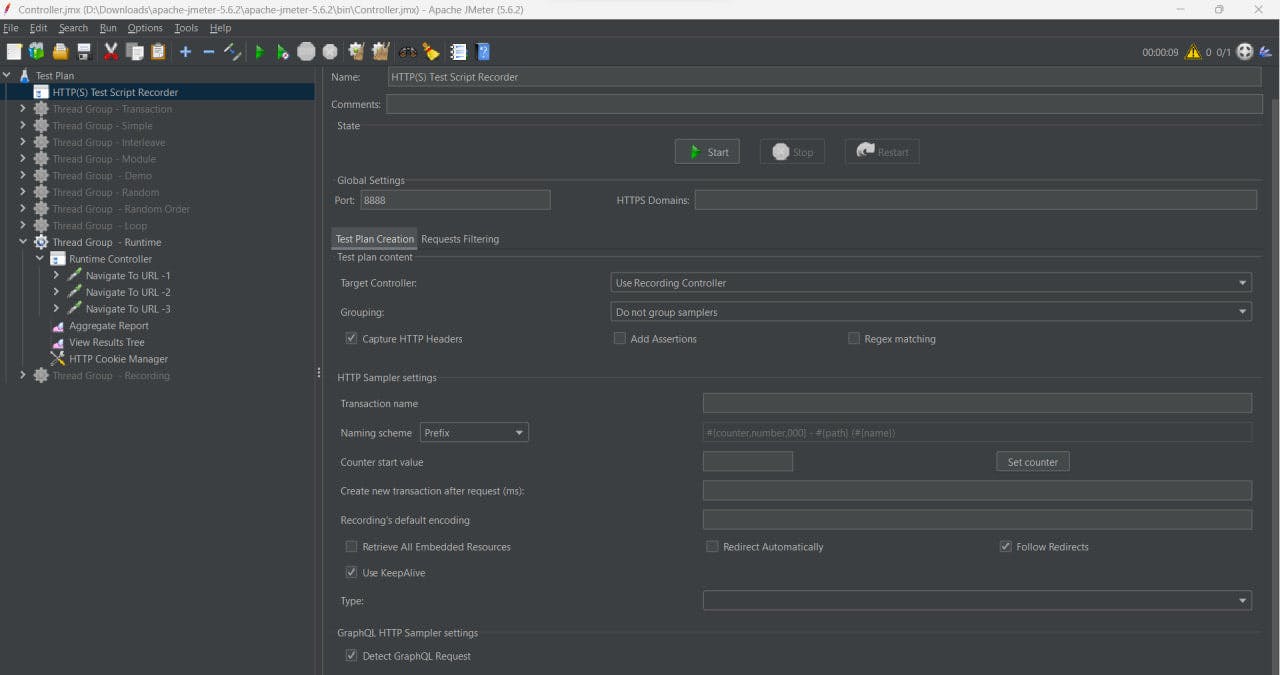
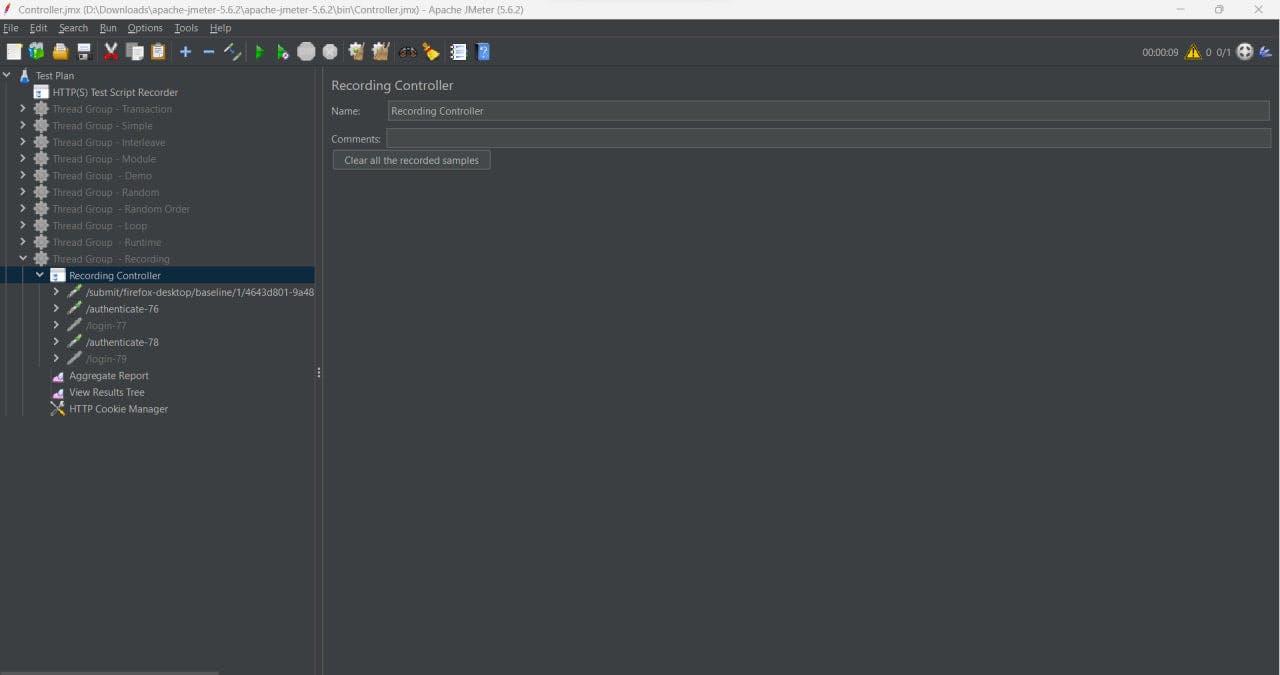
Runtime Controller: Runtime Controller is a logic controller that allows you to control the duration of the execution for its child elements.
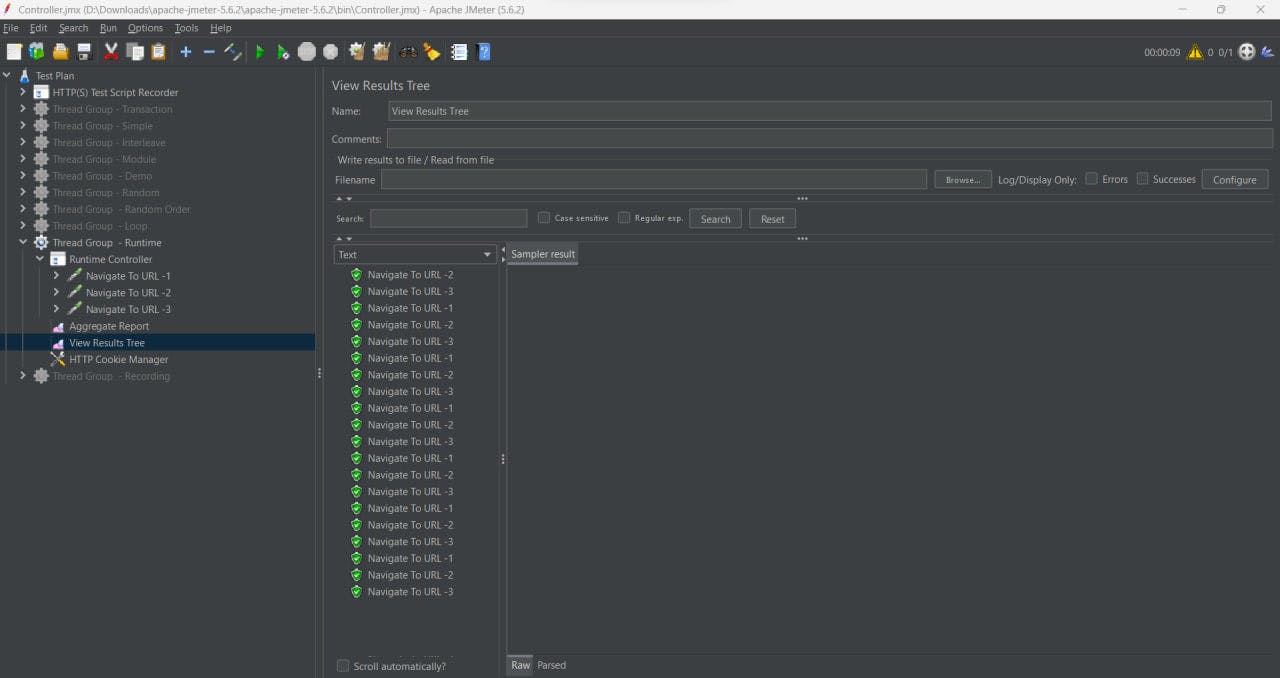
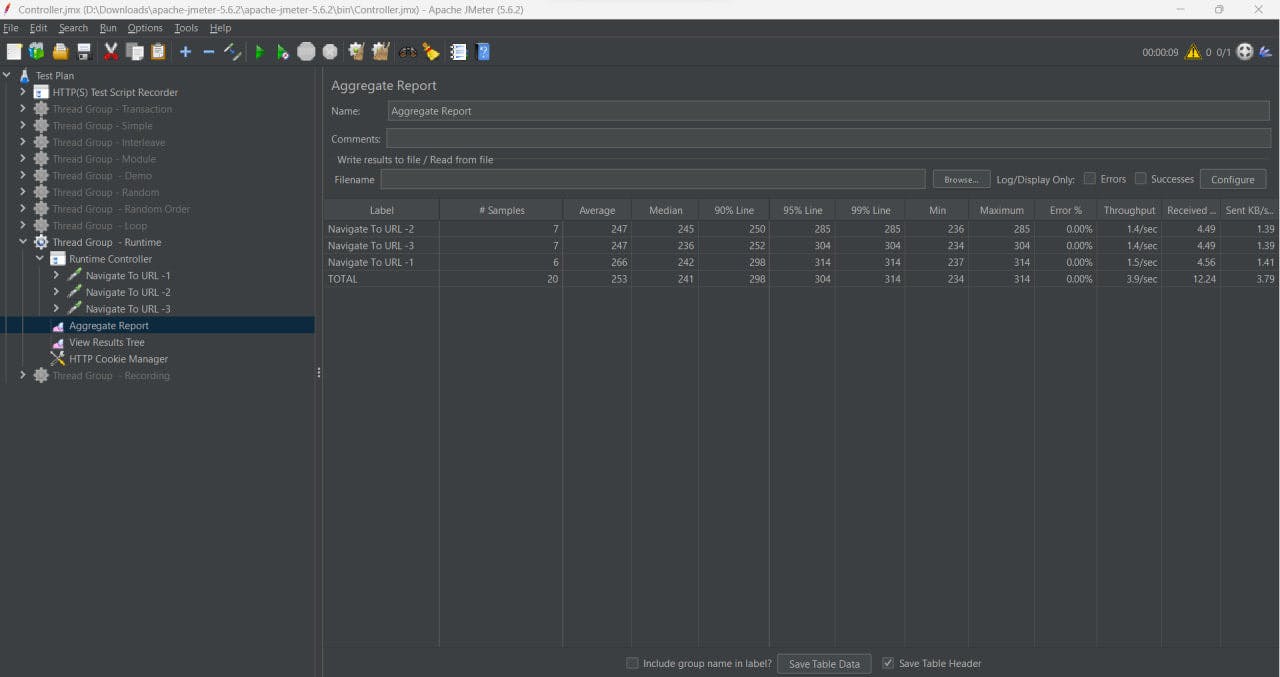
Simple Controller: Simple Controller is used to group other elements within a test plan. Unlike other controllers, the Simple Controller doesn't provide any additional functionality related to the order or iteration of its child elements. It serves as a straightforward container for organizing and grouping samplers, controllers, and other test plan elements for better readability and maintenance.
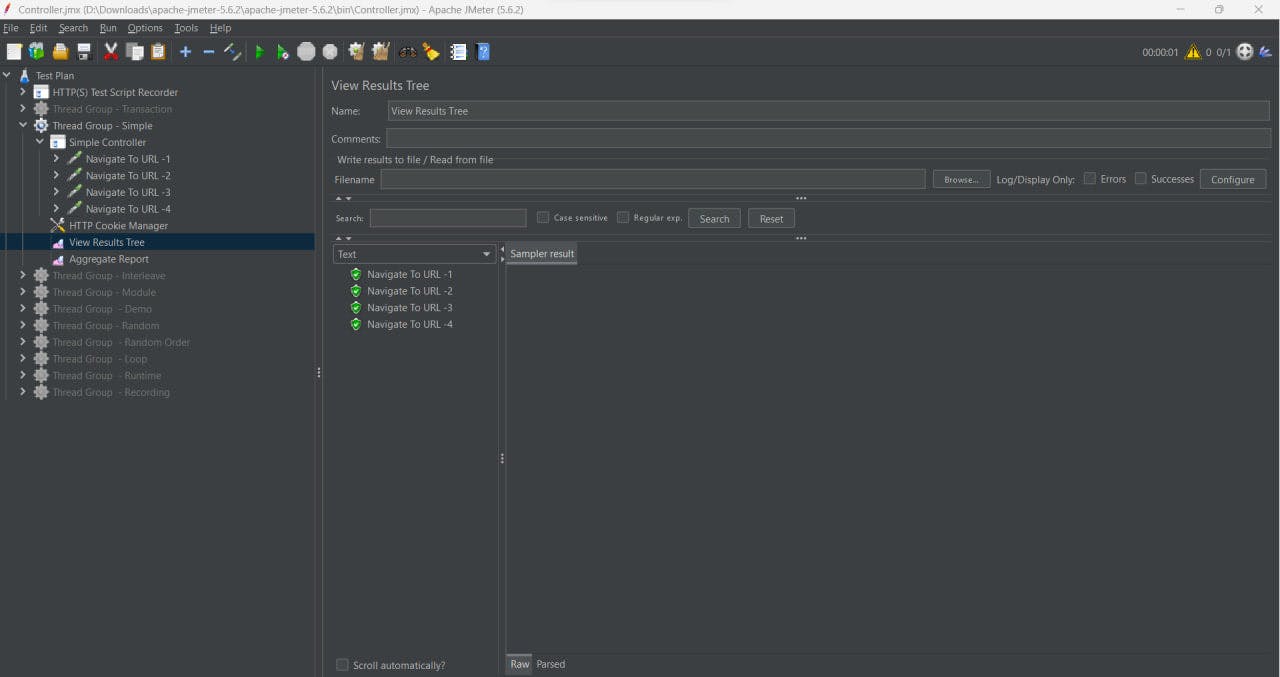
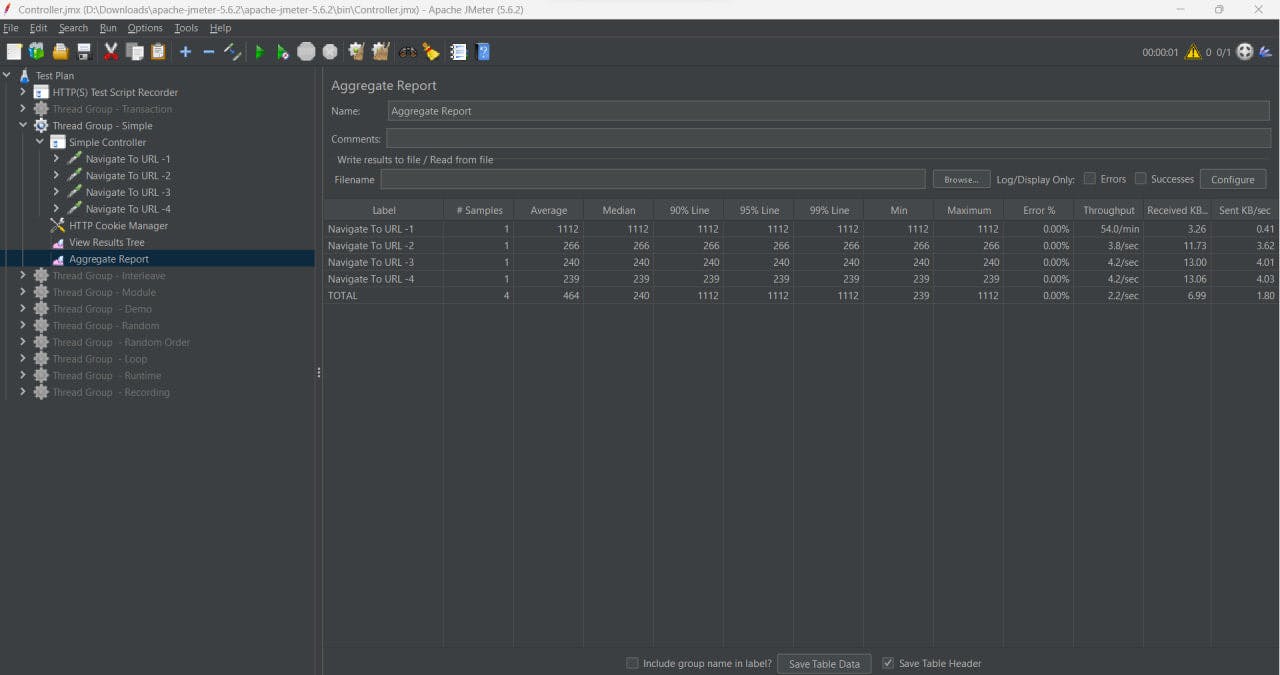
Conclusion
In conclusion, the JMeter Controller is a vital tool for ensuring the reliability and efficiency of web applications. Its ability to organize test elements and manage user behavior empowers testers to conduct thorough performance evaluations and optimize application performance effectively. Mastering the JMeter Controller is essential for achieving testing excellence and delivering superior user experiences.